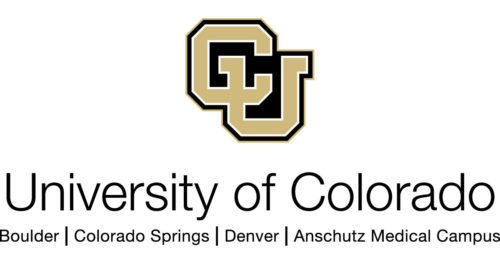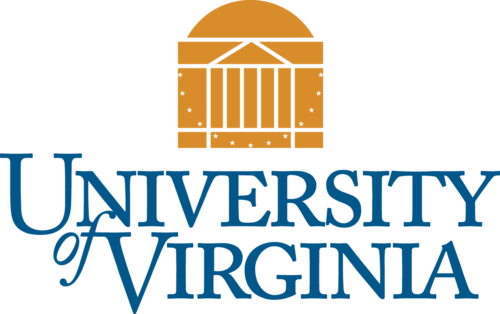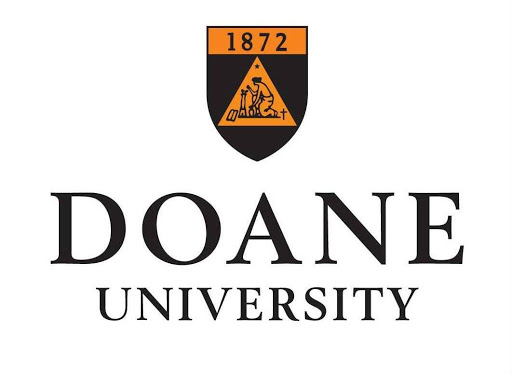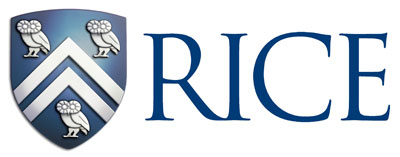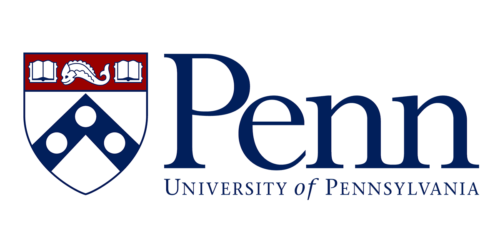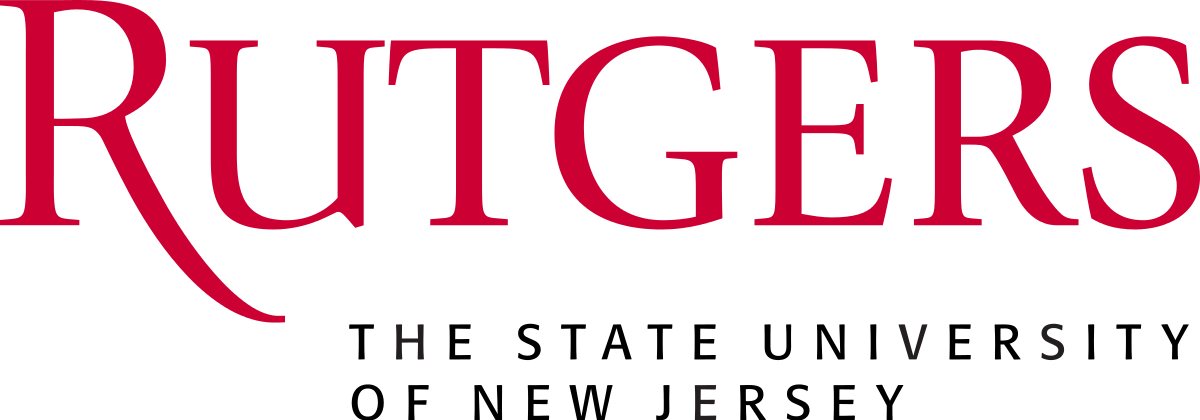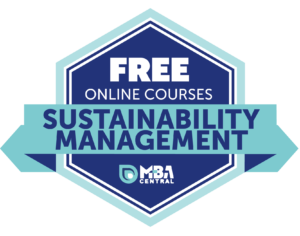
The decision to take free online sustainability management courses is preceded by the following question: What exactly is sustainability management? The days of the robber barons have passed into the annals of history. Profit is no longer the only goal. There is a relatively new business model practiced amongst both large corporations and small businesses. This business model takes into account more traditional business concerns, but it adds sustainability into the mix. This modern practice taught through classes like the free online sustainability courses highlighted later in this article speaks to three bottom lines instead of just one. There is profit, people, and the planet. This practice seeks to allow business success over the long haul. These long-term efforts take the form of fair-trade products, more environmentally friendly packaging, and more humane working environments at factories.
Free Online Sustainability Management Courses
According to Pew Research, topics such as climate change and the environment are significant to many Americans. Awareness of issues related to these topics and the importance of dealing with them is growing among the U.S. population. Modern pedagogy teaches that students are better able to learn and engage with issues that are relevant to their everyday lives. Through free online sustainability classes, students will explore how to work with real-world data and tackle real-life challenges that have the potential to affect them directly. This high degree of engagement is necessary for dealing with the many perceived future challenges addressed through free online sustainability management courses.
Students who choose to pursue sustainability management education will take courses similar to the free online sustainability management courses included within this top 15 list. While traditional classroom study is available at both the undergraduate and graduate level, the opportunity exists to learn about many aspects of sustainability from online and on-campus programs. Hot topics in sustainability include climate change, environmental impact, supply chain, and social impact. These areas are part of the new bottom lines that require one to see beyond a sole motivation that centers around profit. Many of these classes are available through top-rated business schools such as The Wharton School at the University of Pennsylvania. Most of these business schools offer online MBA programs and have free online sustainability management programs through platforms such as Coursera and edX.
Methodology
Determining which free online sustainability management courses are most appropriate for this list consists of locating free upper-level classes on leading MOOC websites covering a broad range of sustainability topics within leading business schools around the country. The websites utilized include Coursera and edX.
#1 Change Management – University of Colorado System
More on Change and Sustainability is a free online sustainability class. Throughout the six-week timeline of this class, students learn about skills relevant to a change agent. Green design and sustainability reporting will be additional critical areas of study. Those students who complete this free online sustainability management class will have the required skills and knowledge to implement useful sustainability reports at their companies. A Forbes article describes change management as a mindset. It describes three primary aspects that must be considered concerning change. The first is leadership. Change has to begin and end with leaders who are not only open to new ideas but are willing to take risks in implementing them. A second aspect is employee engagement. Employees need to be involved in the whole process. When they are allowed to contribute throughout and not just forced to comply with some outside effort thrust upon them, they play a crucial role in the entire action, making it much more successful. Lastly, it must be understood that the process is not going to happen overnight. It takes time and requires patience. A company with a short attention span is not going to implement change successfully. Eric Hoffer said, “In times of change, learners inherit the earth; while the learned find themselves beautifully equipped to deal with a world that no longer exists.” Change is going to happen, and businesses that are not changing will not maximize their potential.
This free online sustainability management course is available through the Coursera platform and offered by the University of Colorado System. Multiple AACSB accredited business schools are within this system. They include UC Boulder’s Leeds School of Business, ranked by U.S. News at #70; UC Colorado Springs’ College of Business, ranked #99-131; and UC Denver’s Business School. The Denver and Colorado Springs locations each offer online MBAs, and U.S. News ranks Colorado Springs’ online MBA at #80. Additional free online sustainability management courses available through the UC system include Making the Business Case for Sustainability, Sustainable Business: Big Issues, Big Changes, and a Capstone on Creating A Sustainability Proposal.
Course Name: More on Change and Sustainability
#2 Climate Change – University of Chicago
Global Warming I: The Science and Modeling of Climate Change is a free online sustainability management course. Over twelve weeks, students will spend 39 hours learning about global warming science at a level intended for the curious layman. Approaching this topic through the lenses of various perspectives, students learn about the potential future impacts of humans on Earth’s climate. Physics, chemistry, biology, Earth and atmospheric sciences, and economics insights guide the class’s direction. Topics covered in this course include the First Climate Model; Heat, Light, and Energy; and Greenhouse Gases and the Atmosphere. According to Nasa, climate change covers a lot of ground. The primary description is that it points to a change in typical weather. This change might include rainfall, or it might refer to temperature. What distinguishes climate change from the weather is the time involved, usually hundreds to millions of years. Nasa points out that many factors contribute to climate change. These include such factors as distance from the sun, solar energy output, and volcanic eruptions. Although there remains much more controversy than one is made aware of, some scientists state that humankind is responsible for climate change and that this change can be mitigated through man-made efforts. Businesses must be mindful of climate change and model their interactions accordingly. Even if climate change is mainly a natural process, many believe it is partially a result of human actions. Businesses may be obligated to implement mitigation strategies that help alleviate climate change and be socially responsible. Additionally, active legislation forcing companies to comply with climate change mitigation is already a reality, and more legislative efforts will indeed be undertaken in the coming years.
This free online sustainability management class is available through Coursera and is offered by the University of Chicago. The University is known for its top-tier business school, the Booth School of Business, recognized by U.S. News as the #3 business school. This AACSB business school does not offer an online MBA. However, in addition to Global Warming I, the University also offers a free online sustainability management class titled Global Warming II. Additional free online courses available through Coursera touch upon neurology, internet law and economics, and urban education.
Course Name: Global Warming I: The Science and Modeling of Climate Change
Business School: Booth School of Business
#3 Corporate Sustainability – University of Virginia
The next class is a brief, free online sustainability management course titled New Models of Business in Society. The class continues for four weeks but requires only five hours of one’s time. This class’s ultimate goal is to teach how businesses can make money and make the world a better place. With the assumption that all companies either create or destroy value in some sense, new business models are discussed. These models include corporate responsibility and philanthropy. This free online sustainability management course explains how profits and value can go hand-in-hand and better serve all parties, from shareholders to communities. Maryville University hosts an article about the importance of environmental awareness in running a business. In its broadest sense, corporate sustainability is operating in a way that doesn’t negatively impact the environment. The environment includes community, economy, and a healthy planet in the essence of what is being discussed here. A business that practices corporate sustainability succeeds by supporting the healthiness of its surrounding environment. The article points out several factors that highlight why businesses are key players when it comes to sustainability. Seventy-one percent of global emissions come from just 100 companies. A majority of Americans want corporations to lead efforts of social and environmental change. Consumers are likely more inclined to purchase a product or service from a company that advocates for consumers’ issues. Many additional statistics are mentioned in the article showing the importance of the topic.
This free online sustainability management course comes from The University of Virginia’s Darden School of Business. The Darden School is ranked as the #11 business school by U.S. News & World Report. With more than 1,700 Darden Alumni are currently either CEOs, presidents, or owners of successful businesses. These alumni now serve as leaders in companies that include the U.S. Army, Alibaba, Mastercard, and Samsung. In addition to offering an online MBA, the University of Virginia offers several free classes through Coursera, along with its free online sustainability management class. Students will choose from courses such as business strategy, entrepreneurship, design thinking for innovation, and marketing analytics.
Course Name: New Models of Business in Society
Business School: Darden School of Business
Featured Programs
#4 Energy – Massachusetts Institute of Technology
Students will study sustainable energy throughout the thirteen weeks of this free online sustainability management course offered by the Massachusetts Institute of Technology. Beginning with the premise that climate change is a man-made issue and that its path may be altered based on energy sources that humans use and actions that humans take, Sustainable Energy offers various avenues toward decarbonization. Through the study of traditional energy sources and sustainable energy sources such as solar and wind power, students will be acquainted with the societal effects of future energy choices as part of this free online sustainability management course. Questions such as ‘how does energy planning affect economics, politics, and social aspects of people’s lives?’ will guide the class’s direction. According to Harvard Business Review, energy is much more than just a cost that businesses need to pay. Energy is an opportunity to reduce risk, better resiliency, and a chance to build new value. These opportunities result from the increased attention given to climate change, carbon emissions, and other environmental rallying cries. There are at least five steps essential aspects of successful implementation that must be followed to make energy policy shine:
- Leadership must be engaged in the process, issuing clear directives to the rest of the company.
- Energy needs to be a part of the company’s vision and operations.
- Energy must be tracked carefully throughout every level.
- There must be a noticeable shift from traditional to renewable and advanced energy technology.
- In order to succeed, key stakeholders need to be engaged.
Massachusetts Institute of Technology (MIT) hosts this free online sustainability management course through edX. MIT is synonymous with cutting edge technology and has led the way in scientific research since its founding in 1861. The school’s Sloan School of Management is well-known for its business acumen. Accredited by the AACSB, the Sloan School is rated #5 by U.S. News & World Report. MIT offers an astounding variety of additional free online courses through edX. Students may study free online sustainability management courses that delve into nuclear energy and biotech. From there, the sky’s the limit on what to learn next.
Course Name: Sustainable Energy
Business School: Sloan School of Management
#5 Environmental Economics – Doane University
Environmental and Natural Resources Economics is a free online sustainability management course. It is an intermediate level course, requiring ten to fifteen hours a week over eight weeks. This course guides the student through economic tools in relation to natural resources and their management. Economic growth and its effect on the environment, along with renewable and nonrenewable resources, are all taken into consideration when attempting to balance environmental protection and a prosperous society. Environmental economics studies how pollution and policies relate to economics and how they influence the ways that traditional and renewable resources are approached. Through the utilization of applied statistics and quantitative skills, students analyze data and policies. By measuring the cost of policy interventions and the likelihood of successful outcomes, students will learn how to best approach economics and create maximum value for the environment.
Doane University, accredited through the New England Commission on Higher Education, offers this free online sustainability management course through the edX platform. Doane University offers an online MBA through its College of Business. This relatively new College of Business, established in 2019, is in the process of garnering ACBSP accreditation for its business programs. These programs include many undergraduate degrees such as accounting, business administration, and agribusiness. Additionally, students pursue graduate degrees in management and business administration. A very enticing feature of Doane’s business school is the ability of undergrad students to take a free graduate-level course in each of their last two semesters, allowing them to both get a head start on graduate work and save some money. Doane University’s open learning program is designed to provide undergraduate and graduate credit courses entirely online in an eight-week format. Students needing prerequisite classes can quickly and efficiently make use of classes that range from the physical sciences to business. Available graduate classes include International Business & Economics, Introduction to Design Thinking, and Game Strategies and Motivation. Doane offers many free courses through edx, including various free online sustainability management courses covering aspects of sustainability in the agri-food industry. Other free online courses cover topics such as psychology, healthcare leadership, macroeconomics, and health law.
Course Name: Environmental and Natural Resources Economics
Business School: College of Business
#6 Environmental Impact – Rice University
Environmental impact is addressed through a free online sustainability management course titled Natural Attenuation of Groundwater Contaminants: New Paradigms, Technologies, and Applications. Over nine weeks and about 27 hours of study, students learn about various remediation methods for treating contaminated groundwater. A primary focus for the course centers around MNA as a groundwater treatment. Students will learn the history behind MNA and how it may be utilized in the future. This free online sustainability management class makes use of lectures, readings, and computational exercises to gain an appreciation of MNA. Environmental impact is a broad term used to describe any change from activities, services, or products. Most often, this refers to the effect that people have on the environment. Although the ones most often in the news are negative, positive actions are also included. One noteworthy example is Afroz Shah, who spent about 21 months on what was called the world’s most extensive beach cleanup in Mumbai. Environmental impact is, according to Forbes, a necessity for modern businesses. More than 25% of Gen Zs and millennials think companies should help protect and improve the environment. Around 40% claim that they will not buy from companies that negatively impact the environment.
Rice University, certified by the Southern Association of Colleges and Schools, Commission on Colleges, offers this free online sustainability management course through Coursera. Rice University’s business school, the Jesse H. Jones Graduate School of Business, is accredited by the prestigious AACSB. This impressive business school is additionally recognized by U.S. News & World Report as the #25 business school. Rice offers an online MBA also recognized by U.S. News at #123. Beyond its MBA, Rice provides a Master of Accounting and a Ph.D. in Business. With a number of non-degree executive education opportunities, students will expand their horizons through fully online learning in real estate and leadership, along with customized programs geared toward individual needs. Not limited to just free online sustainability programs through Coursera, Rice offers many other opportunities. Among these are Business Statistics and Analysis, Engineering Project Management, and Fundamental of Immunology.
Course Name: Natural Attenuation of Groundwater Contaminants: New Paradigms, Technologies, and Applications
Business School: Jesse H. Jones Graduate School of Business
#7 Environmental Policy – University of North Carolina at Chapel Hill
Those interested in learning about environmental laws and policies are well served by this free online sustainability management course titled Introduction to Environmental Law and Policy. Over a period of six weeks and fifteen hours, learners are introduced to existing bodies that govern areas such as pollution, water law, endangered species, and toxic substances. This free online sustainability management course aims to strike a balance between these environmental protections, human liberty, and economic freedom. Today, governments, private industry, and NGOs work together to develop and implement environmental policy. These policies began with end-of-pipe solutions where an operator might pay a fine for damages caused. From there, systems grew more toward prevention and control. A third way of dealing with these issues is adaptation, where environments are changed so as to accommodate an ecosystem and make it stronger. Instruments utilized to serve the climate include regulation, financial incentives, information, and tradable permits. Many consumers favor companies that strive toward green policy implementation. These businesses demonstrate their commitment to the environment in many ways, including recycling programs, energy conservation plans, telecommuting and carpooling, and product packaging. This free online sustainability management class goes so far as to posit that environmental law may be the only thing that stands between humans and planetary destruction.
The University of North Carolina at Chapel Hill makes this free online sustainability management course available through Coursera. UNC-Chapel Hill distinguishes itself in many ways. Its Kenan-Flagler Business School, for example, is AACSB accredited and ranked #20 by U.S. News & World Report. Additionally, this high-ranked business school offers U.S. News’ #1 online MBA program. Also, MBA students have the opportunity to concentrate in sustainable enterprise. The Kenan-Flagler Business School offers customized programs to help organizations overcome their unique challenges in business management and talent management. Individual programs range from foundational to innovative thinking and cover areas such as Leading Through Influence and Strategic Decision Making in both virtual and residential settings. Additionally, students will take free online courses through Coursera, including Positive Psychology, Epidemiology, Nanotechnology, and Infection Prevention in Nursing Homes.
Course Name: Introduction to Environmental Law and Policy
Business School: Kenan-Flagler Business School
#8 Financial Sustainability – University of Maryland Global Campus
Part of a micro masters program, Financial Decision Making is a free online sustainability management course. Students will study foundational concepts such as financial accounting, finance, and managerial decision making. Students will also look through the lenses of government and non-profits as they explore financial sustainability. Utilizing tools like break-even analysis, activity-based costing procedures, and discounted cash flow techniques, this free online sustainability management course lasts eight weeks. It requires an eight to ten-hour commitment each week. According to Rider University, financial sustainability looks beyond traditional business metrics. It looks at environmental factors such as carbon emissions and waste management. It looks at social aspects that include customer satisfaction and community relations. Additionally, financial sustainability focuses on governance that provides for things like board composition and executive compensation. There are three main characteristics of financial sustainability: environmental risk management, financial transparency, and business relations. At the heart of all of this is data. The data determines how successful and dedicated a company is toward sustainable strategies. Ultimately, an organization with this mindset garners investor trust and a positive reputation that aids in its success.
The University of Maryland Global campus offers this free online sustainability management course. With IACBE certified business programs and an online MBA program that may be completed entirely online or with some hybrid options in less than two years, the University is dedicated to providing education for the working professional. With a strong commitment to both active military and veterans, UMGC made special efforts in serving this community beginning with WWII. This free online sustainability management course, the first in the previously mentioned micro masters program, includes additional courses specializing in financial accounting for corporations, financial management in organizations, and long-term financial management. UMGC offers six other micro masters programs through edX. Ranging from two to four courses, these free programs include Applied Entrepreneurship, Bioinformatics, and Instructional Design and Technology. Students will also pursue free online business classes, entrepreneurship, and software testing. UMGC is a part of the University of Maryland system where students can access many additional free online sustainability management courses and business courses.
Course Name: Financial Decision Making
#9 GIS Technology – University of California, Davis
This free online GIS technology class titled Geospatial and Environmental Analysis is an intermediate level. Students taking this free online sustainability management course should be comfortable and experienced with GIS concepts to get the most out of it. The class is project-based, geared toward collaboration on all stages from conception to analysis. Over four weeks, students learn ArcToolbox, get familiar with raster data, gain a firm grasp of projections and coordinate systems, learn about symbology, and make efficient use of it within maps. GIS takes spatial data, a physical location of something, and combines it with attribute data, which is information about that location. Schools serve as a good example. A school’s location is spatial data. Attribute data consists of things like the school name, the grade levels, and the number of students at the school. GIS is used for problem-solving and decision-making. It aids in the visualization of data at a particular spot. GIS serves to map where things are, map quantities, map densities, map what is inside, such as properties affected by a flood, and find what is nearby. GIS is used to map all manner of things geographic changes. It can be used to determine which areas are vulnerable to flood, determine climate change patterns, or any other public policy issues. It can show population growth in regions, shrinking green spaces, and measuring environmental impact and potential damage.
The University of California, Davis offers this free online sustainability management course on GIS technology. Fully accredited by the AACSB, UC Davis’s Graduate School of Management is an impressively ranked program. U.S. News rates the School of Management at #48. UC Davis offers a master’s in accountancy and business analytics, several on-campus MBAs, and an online MBA. Rounding out a specialization in GIS, students will take three additional free online sustainability management courses. These courses include Fundamental of GIS; GIS Data Formats, Design, and Quality; and Imagery, Automation, and Applications. The specialization is finalized with an analysis project that ties everything together. UC Davis also offers free online courses covering autism spectrum disorder, content marketing, management skills, and computational social science methods.
Course Name: Geospatial and Environmental Analysis
Business School: Graduate School of Management
#10 Quantitative Analysis – Georgia Institute of Technology
This intermediate-level free online sustainability management course lasts for three weeks and 18-30 hours. The purpose of the course is to introduce students to basic concepts in probability. Students are equipped to identify probability axioms. From there, they will apply basic counting rules, like permutations and combinations. The grand finale involves Bayes Rule and how it relates to updating probabilities. Quantitative analysts are like the movie Matrix. When the main character uses his mojo within the matrix, everything he looks at becomes a stream of numbers. Neo is a glorified quantitative analyst. They represent reality as a numerical value and examine the past, the present, and the future of anything that uses numbers. This analysis is useful in various fields such as chemistry, financial analysis, social science, and even sports. Governments make use of QA when they make economic decisions or set monetary policy. Quantitative analysis plays a crucial role in environmental science and sustainability. The field is continuously evolving, and in many cases, it is dealing with events that haven’t happened. QA offers a means of providing evidence for something that hasn’t happened. It allows one to estimate the likelihood of future events.
Probability and Statistics I: A Gentle Introduction to Probability is a free online sustainability management class offered by the Georgia Institute of Technology. The AACSB accredits Georgia Tech’s Scheller College of Business. On top of that, it is highly rated by U.S. News & World Report as the #27 business school. Scheller offers several iterations of its MBA program that include a full-time, evening, and executive MBA. Additionally, it provides PhDs ranging from accounting to strategy & innovation. Along with an executive program for those looking to sharpen their skills, Georgia Tech offers customized corporate classes designed to meet specific goals and provide immediate impact. Past clients of these customized experiences include Bank of America, Anheuser Busch, Delta Air Lines, and the Federal Bureau of Investigation. Free online sustainability management courses are only a portion of the offerings available from Georgia Tech on edX. There are many additional math-related courses involving statistics and analysis, leadership classes, and computing classes.
Course Name: Probability and Statistics I: A Gentle Introduction to Probability
Business School: Scheller College of Business
Featured Programs
#11 Social Impact – University of Pennsylvania
Led by two experienced professors, this free online sustainability management class is titled Social Entrepreneurship. Lasting four weeks and requiring six hours of effort, this class places students desiring to launch social entrepreneurial endeavors on the path to success. Students are guided through the process by first learning how to identify what constitutes a social problem. They are then taught to appreciate the contextual realities involved, followed by learning to develop a solution and ultimately deploying their resources to make things happen. The University of Michigan’s Ross Business School clarifies the definition of social impact. While impact is a word vast in its scope, social impact is much more focused. It must be a positive impact, and it must address a pressing social challenge. What pressing refers to is also somewhat vague and open to debate. However, commonalities that are present across the spectrum include human dignity and opportunity. Michigan Ross further clarifies positive impact. It must improve the current conditions. So, social impact is “a significant, positive change that addresses a pressing social challenge.” The University of Pennsylvania’s Center for Social Impact Strategy highlights important reasons that social impact is essential for businesses with some key stats. Ninety percent of millennials state that if there is a choice between two comparable products, they will choose the one that is a cause branded product. Additionally, 51% of global consumers are willing to pay more for products or services committed to having a positive social impact.
The University of Pennsylvania has a free online sustainability management class available through Coursera. Penn’s Wharton School is not only accredited through the prestigious AACSB, but it is rated #1 by U.S. News & World Report. The school’s Social Entrepreneurship class is part three of a four-part specialization. Additional free online sustainability management courses within this specialization include Global Trends for Business and Society, Corruption, and Business Strategies for Social Impact. Penn’s Center for Social Impact is part of its School of Social Policy & Practice. Its mission is to provide anyone interested with the resources and the tools needed for social impact.
Course Name: Social Entrepreneurship
Business School: The Wharton School
#12 Supply Chain – Rutgers the State University of New Jersey
Rutgers has put together a free online sustainability management class called Supply Chain Excellence. The course teaches that supply chain leaders manage products, but they also control information and financing. Successfully managing these three aspects allows them to create a supply chain that is both efficient and effective. This course lasts three weeks, and it requires about 13 hours of one’s time. North Carolina State posits that although supply chains have been around for quite a while, they weren’t very efficient for most of that time. Organizations at the top didn’t focus much on what was going on between them and the final customer. A supply chain potentially has many moving parts, and it involves many organizations that fill in the spaces between an organization and its customers. These gaps are made up of two major avenues. The first is physical. The physical includes parties that handle things like production, transportation, and storage. The other avenue is information. This information flows between all involved parties, coordinating all of the efforts. The Harvard Business Review points out that many MNCs (Multinational Corporations) are beginning to make a point of only working with suppliers that meet strict social and environmental standards. They focus on their first-tier suppliers, who are then supposed to make sure their suppliers have the same standards, and the process goes on along the supply chain so that ultimately all of those involved are meeting the same high standards. Unfortunately, this doesn’t always work in the real world, as the article demonstrates by pointing out problems faced by such companies as Apple and Nike.
Supply Chain Excellence is a free online sustainability management course. It is an offering from Rutgers, which has two AACSB accredited business schools in its system. One is located in Camden, New Jersey, which offers an online MBA degree ranked #69 by U.S. News & World Report. The other business school, located in Newark and New Brunswick, New Jersey, is rated #56 by U.S. News. The Rutgers system offers many additional free online sustainability management classes in supply chain management through Coursera.
Course Name: Supply Chain Excellence
#13 Sustainability 101 – University of Illinois at Urbana-Champaign
Introduction to Sustainability is a free online sustainability management course lasting two months. The combined course of study requires a commitment of about 25 hours. The course is taught with the understanding that one needs more than just a background in sustainability. To be fully appreciated, one needs to have cross-disciplinary knowledge. Understanding human motivations involves knowledge of the humanities. Appreciating the challenges involved requires natural and social science. In order to dive into the solutions, one is well served with knowledge of engineering, planning, and management. Crucial areas of sustainability covered throughout this free online sustainability management course include population, ecosystems, energy, agriculture, and environmental economics. The EPA approaches sustainability with the premise that everything humans need comes from the natural environment. For humanity to continue to thrive, there must be harmony between nature and humankind. In terms of business, sustainability covers more ground than that specified by the EPA. Maryville University adds community and economy to the scope of sustainability. An example illustrating the fallout from poor business practices is the “Great Pacific Garbage Patch.” This garbage patch is an island of plastic waste that is twice the size of Texas, floating in the pacific and potentially harming both marine and human life. Maryville posits that if businesses do not act according to sustainable standards, many species won’t make it past the 21st century. Although there are many challenges when incorporating sustainable practices into a business model, there are long-term benefits, such as reducing costs and improved reputation.
The University of Illinois at Urbana-Champaign provides a free online sustainability management class that seeks to tackle the topic from an academic perspective. Illinois’ Gies College of Business is fully accredited by the AACSB and offers an online MBA program. Gies’s goal is to provide knowledge and provide the tools needed for students to make the world a better place. The business school offers programs ranging from undergraduate to Doctoral, along with additional online programs such as its MSA and MSM. Other free online sustainability management classes, including Sustainable Business Enterprises and Subsistence Marketplaces, are available from Geis through Coursera.
Course Name: Introduction to Sustainability
Business School: Gies College of Business
#14 Sustainable Development – University of Michigan
Over the course of five weeks and requiring about nine hours, Beyond Sustainable Development Goals: Addressing Sustainability and Development is a free online sustainability management class available on Coursera. Sustainability and development, in the case of this course, are considered equal fields. The course makes a continuous effort to build bridges between the two in order to come to realistic solutions. The subject matter all takes place in the shadow of pressing world challenges such as climate change, poverty, and ecosystem degradation. Columbia University speaks of sustainable development as an attempt to meet present needs but doing so in a way that doesn’t mess things up for future generations. Columbia claims that a lack of sustainable development leads to global warming, rising sea levels, slum populations, and regional conflict. Meaning, an organizations’ need to practice sustainable development is evident at all levels of society. It stresses that either these methods govern day to day life or the world as we know it will end.
The University of Michigan is accredited through the Higher Learning Commission. The University’s Stephen M. Ross School of Business is further accredited through the AACSB. U.S. News & World Report also sets the Ross School of Business apart through its ranking of #12. In addition to its free online sustainability management course, Michigan offers an online MBA, along with several additional iterations such as a weekend, evening, and global MBA. One-year master’s programs are available in accounting, management, and supply chain management. A wide variety of leadership programs are available entirely online as part of Michigan’s executive education program. Classes range from Accelerating Deep Change to Entering the Fundamental State of Leadership. Additional free online sustainability management courses are available as part of a Sustainability and Development Master Track program. There are currently fourteen courses that include Poverty to Wellbeing, Pathways to Zero Hunger, Quality Education for Sustainability, and The Future of Water. Not all of these classes are currently available, and this is a relatively new program. There may be several changes to courses and content.
Course Name: Beyond the Sustainable Development Goals (SDGs): Addressing Sustainability and Development
Business School: Stephen M. Ross School of Business
#15 Sustainable Food Systems – Penn State
Dairy Production and Management is a free online sustainability management class. The class takes the idea of sustainable food systems and focuses on one significant aspect: dairy production. Students will spend a total of about 76 hours and eight weeks learning about this crucial aspect of world nutrition. The majority of the world’s milk comes from cattle, around 85%. However, there are alternatives such as water buffaloes, goats, sheep, and camels. The United States is the world’s largest dairy producer. In 2014, the U.S. produced 205 billion pounds of milk. While efficiency and production have increased dramatically over the last decade, there is a need to balance. Challenges, which must be considered and improved upon, deal with things like animal health environmental protection. MIT describes sustainable food systems on a broader scale. The challenges that it identifies involve carbon emissions, resilience, and nutrition content. Almost half of the Earth’s land is used for agriculture. Nearly one-third of the world’s population depends on some aspect of the food industry for their livelihood. With agreements such as the Paris Climate Accord in place, carbon emissions from this vast sector of the world economy must be reduced to zero by 2050. However, at the same time, production will need to provide food for three billion more people. Another hurdle mentioned is that 30% of food is lost or wasted. This waste impacts the environment negatively without feeding anyone. In order to best serve the world population, the global industry must become even more efficient and calculate a way to do so that impacts the environment even less, and this all needs to happen very quickly.
Penn state approaches a microcosm of this hurdle by offering free online sustainability management focusing on the dairy industry. Penn State’s Smeal College of Business, accredited by the AACSB and ranked #41 by U.S. News & World Report, partners with Penn State World Campus to bring this free online sustainability management class to fruition. PSU further advances this field through its sustainable food systems program, combining education, hands-on learning, and outreach.
Course Name: Dairy Production and Management
Business School: Smeal College of Business in partnership with Penn State World Campus
What does a career in sustainability management look like?
The U.S. Bureau of Labor Statistics states that “There is no set career path for jobs in sustainability; …[they’re very different] across different organizations.” Sustainability degrees are rounded out with a variety of useful skills. There aren’t many careers where those skills are not relevant or valuable. The University of Wisconsin offers a list of possible jobs that one may pursue with a degree in sustainability management. The list includes several opportunities that aren’t the first ones that someone is likely to consider right off the starting line, such as an accountant, a U.S. Military Service Member, an Insurance Broker, and a Graphic Designer. When one stops to think about it, though, anywhere that waste exists, where the environment might be impacted, or where people are affected is a place where sustainability expertise is very relevant. This expertise may even come from a free online class in sustainability management here and there.
How do you become a sustainability manager?
Unity College states that a career in sustainability management necessitates a significant amount of academic and professional preparation. About 54% of sustainability managers have a bachelor’s degree, 29% have a master’s degree, and about 7% have doctorates. Certain qualities should be present to be successful such as leadership ability, a strong academic base, and substantial professional experience. There also must be an ongoing effort to stay current on a variety of skills and topics. One must remain abreast of materials, methods, and tools used in the construction of infrastructure. One must be proficient with blueprints, drawings, and models.
Additionally, good communication skills are a must. Many of these skills may be maintained through free online sustainability classes such as those mentioned on this list. Many other courses are also available that will aid in preserving these skills. Finally, this is a career where passion is vital. One must have a fire for bringing changes that will affect the future of the world.
What kind of sustainability management degrees are available?
One can find a great deal of variation in sustainability degrees. Undergraduate degrees might consist of both Bachelor of Arts and Bachelor of Science degrees. BAs best equip students for social sciences, humanities, and planning. BS degrees are best suited for the natural sciences, economics, or some type of engineering. As one of the free online sustainability management courses listed above, one is able to earn a BS in Sustainable Food Systems.
At the graduate level, students have even more options. There’s a MA in Sustainability, which is similar to the BA in that it best serves fields such as social sciences and humanities. An MS in Sustainability, similar to a BS, gravitates toward nature science, economics, and engineering. Like the variety of free online sustainability management classes available, students can get more specific in their choice of sustainability degrees. There are Masters in Sustainability Solutions, Sustainability Leadership, and executive versions of these. Additionally, students can pursue terminal degrees such as a Doctor of Philosophy in Sustainability and Doctor of Philosophy in Sustainable Energy. These examples are simply a sampling of the variety of directions in which one can pursue a sustainability education.
What are some ways that students can specialize in sustainability management?
A variety of sustainability specializations can be found at the University of Maryland within its Mees Graduate Program. Students earn both Masters and PhDs in crucial areas such as environment and society, Earth and ocean systems, ecological systems, and environmental molecular science and technology.
Civil Engineering students taking classes at the University of Illinois have many sustainability specializations from which to choose. Among these choices are energy-water-environment sustainability, societal risk management, sustainable and resilient infrastructure systems, and water resources engineering and science. Many free online sustainability management classes are available that offer insight into these areas.
What can you do with an MBA in sustainability management?
Pursuing an MBA in sustainability management gives one the business acumen and leadership skills of a traditional MBA plus offers an extra focus in areas such as environmental integrity and social equity. The sky’s the limit. There is a place for one with an MBA in sustainability management in virtually any industry, from start-ups to large corporations. The same skills are imparted and an extra filter that allows one to better face sustainability opportunities and challenges.
